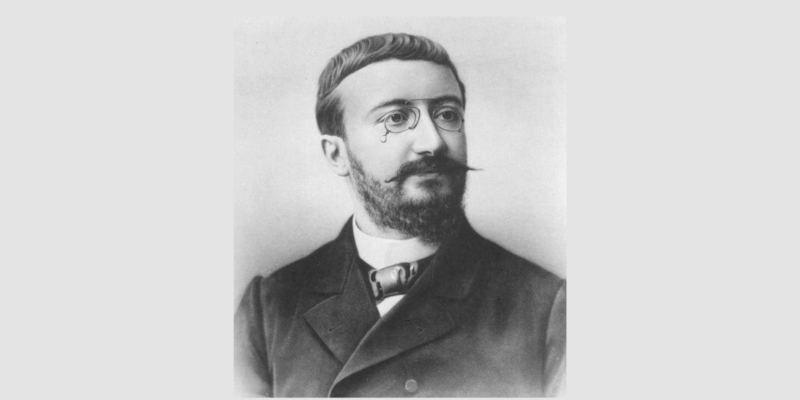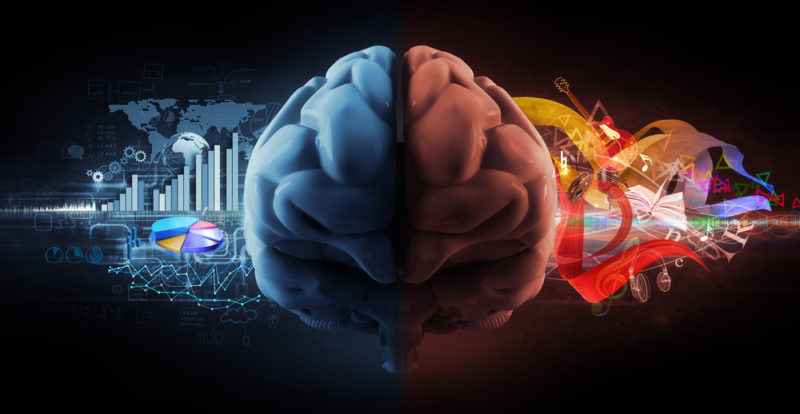We explain what intelligence is, how it is classified and what its functions are. Also, why it is so important and its characteristics.
What is intelligence?
Intelligence is the ability of human beings (and to a lesser extent of some higher animals) to construct useful information to solve a problem , based on environmental conditions and what has been learned previously. In fewer words: intelligence is the ability to solve a problem using creativity , memory and deductive ability.
Intelligence must be distinguished from encyclopedic knowledge and even from general culture, as well as from mental speed of calculation or verbal skill, although all of this is usually in some way linked to certain types of intelligence. An intelligent person is not necessarily cultured or fast, but has an intrinsic ability to understand situations and deduce or imagine solutions.
Traditionally , the human is distinguished from the rest of the higher animals in that it reaches (although sometimes it does not seem like it) the highest known degrees of intelligence, which has been key in its evolutionary process and has allowed it to understand reality at deep levels. , invent a complex series of expressive tools and media, and shape the environment at will.
Etymology of intelligence
The word “intelligence” comes from two Latin words: inter (“between”) and leggere (read, choose) , so in its primary meaning it implied the ability to “read between the lines”, that is, to interpret, deduce, beyond the obvious.
Hence, during the Middle Ages it became intelligentia , to refer to understanding, and eventually into " intelligentsia " to name the social class made up of intellectuals and cultural personalities .
Intelligence definitions

There is no single definition for intelligence but it will depend on the specific approach and the factors taken into account : attempts to establish exactly what intelligence is have always generated debate .
Thus, for example, Ch. Spearman considered it a unitary capacity to solve problems and create new content, while for LG Humphreys it was a set of abilities that allow the living being to better adapt to its environment.
For Alfred Bienet intelligence was common sense or practical sense , that is, the adaptive capacity to solve a problem and for Reuven Feuerstein the human capacity to modify the structure of its cognitive functioning to adapt to changes in a situation throughout the life .
Intelligence types
Just as there is no single definition of intelligence, there are numerous forms of intelligence that allow it to be studied separately, according to the specific field of perceptions, reasoning or perceptions that they involve:
- Linguistic-verbal. They are intelligence models that are based on the formulation of thought through verbal language , whether written or oral, as well as its transmission and recovery through reading .
- Numerical. The one that has to do with formal logical processes and that finds its maximum expression in mathematics and numbers.
- Space. It points to the deep perception of the environment, of the forms that underlie what is seen and the relationships between them.
- Physical or motor. It is an intelligence model related to the actions of the body , that is, its movements, its skills, its capacities. It is not usually considered a form of intelligence since it is often mistakenly associated only with mental or intellectual processes.
- Emotional . Emotional intelligence has to do with the effective and efficient management of one's own emotionality, first proposed by Daniel Coleman in his book Emotional intelligence .
- Social. It applies to the field of interpersonal relationships and uses charisma, leadership, even manipulation and other talents of a social nature.
Intelligence functions

Intelligence is in charge of dealing with the outer and inner world in such a way that we can adapt to situations successfully. Its main functions are:
- Anticipate. Based on what we have learned and the variables of the environment, intelligence seeks to anticipate what could happen and take the pertinent measures to protect, ensure or give us the advantage in any situation.
- Build. Intelligence builds the structures of thought that memory will store, in such a way that it allows us to return to those experiences to react to future situations.
- To mean. Intelligence is also in charge of the communicative area, forming its own symbols and languages, which allow us to represent the real world in its absence.
- Establish relations. Causation, consequence, the various types of relationships that we can establish between one reality and another, are the field of action of intelligence.
Importance of intelligence
Intelligence plays a particularly central role in humanity as it is our great evolutionary tool . Unlike other animal species , which developed physical capacities to adapt to the environment, human beings increasingly developed their capacity for learning and deduction, thus being able to modify the elements and even the environment to adapt it to their needs, and not the other way around.
This represents the triumph of intelligence in the evolutionary race.
Intelligence measurement

There are numerous attempts to measure intelligence through different scales and procedures.
Psychometry, a discipline in charge of psychological measurements , pursues a unique measure of intelligence called the "general intelligence factor" or G Factor that compares the performance of a subject with respect to his or her social group of reference.
Other measurement proposals are those that determine the intellectual coefficient (IQ) , which compares the performance of a subject in an intelligence test with the expected measurements for their age.
Intelligence development

The development of human intelligence is studied by pedagogy based on various determining factors of its progressive growth, such as:
- Genetic factors. Hereditary propensities and innate facilities towards some kind of intelligence.
- Environmental factors. Vital elements in the growth of the individual, especially in its early stages such as nutrition, the appropriate family environment, access to formal education and motivation towards learning.
The Flynn effect
The “Flynn effect” is known as a principle of intelligence accumulation in successive generations , which would register a gradual increase in IQ, since the ideal development conditions are maintained from one generation to the other.
Social and economic elements such as poverty and malnutrition would negatively affect transmission and prevent the effect, which in other conditions would tend to gradually increase intelligence.
The principle of laterality

A principle of laterality is called a theory about the functioning of the brain (and therefore of intelligent thinking) that operates differently in each of the two cerebral hemispheres:
- Left hemisphere. It deals with analytical, logical and linguistic thinking.
- Right hemisphere. It is in charge of creative, musical, spatial or pictorial thinking.
Animal intelligence
It is commonly spoken of "animal intelligence" to refer to the degree of learning and deductive reasoning of animals , although it is impossible to determine for sure how intelligent they really are. This discipline studies, for example, if they have the capacity for language and symbolization.
At the moment, everything indicates that these characteristics are unique to humans: for example, a parrot that repeats a word may articulate the sounds , and even associate them with some reward or punishment, but not understand the abstract meaning that they entail.
The above content published at Collaborative Research Group is for informational and educational purposes only and has been developed by referring reliable sources and recommendations from technology experts. We do not have any contact with official entities nor do we intend to replace the information that they emit.
Anas is an editor of a prestigious publishing company in the United States. She studied Mathematics in Arizona. Anas is also a teacher and one of her long-term goals is to build an institution that offers free education to everyone who are financially not stable. .
Leave a reply
Your email address will not be published. Required fields are marked *Recent post

Sport: What Is It, Types, Risks, Features, Characteristics and Examples

Dogs: Emergence, Features, Characteristics, Feeding and Breeds

Story: Definition, Elements, Structure, Features and Characteristics

